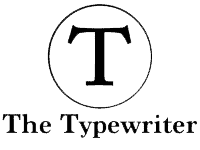On Sunday thousands of Catalonians flocked to the polls to cast their vote in the Spanish region’s elections.
Although ostensibly a normal parliamentary vote, the elections have in reality become a referendum on Catalonia’s independence, with 5 parties forming a block, ‘Junts Per Si’ (Joined for Yes), that promises to pursue legislative action that would see Catalonia become a fully-fledged state by 2017.
In the end, Junts Per Si succeeded in securing a majority of the 135 parliamentary seats, meaning that Catalonia will soon begin its fight for independence.
The results will impact the future of all Catalonians, but especially young people, who will inherit the Catalonia built by the decisions made today – on the issue of independence, they remain divided.
How do young Spanish voters think about the Catalonia election results?
“This election is very strange in comparison to all the others I’ve participated in” says Nuria, a law student. The strong and vocal pro-independence movement tends to dominate, but many quietly question the secession project.
16-year-old Lena worries that her parents, who work in Spain’s national police force, will lose their jobs should Catalonia become a separate state.
“They have specific training for this police, and Catalonia will probably not have the same one” she says, reflecting the fears of many whose employment is tied to the Spanish state and its businesses.
Others highlight the uncertainty of the move – “They say that the only option to improve the way of life of all the Catalans is the independence, but the citizens we don’t really know the consequences of this step” says Nuria.
Catalonia has been hard-hit by Spain’s recession, measuring an unemployment rate of 20%, and many point the finger at excessive taxation and mismanagement by the Spanish government.
Economists calculate Catalonia pays out €12 billion more in taxes than in receives in social services from the central government (Reuters). Nuria, who doubts the impact independence will have, highlights that Catalonia has suffered cuts in education and health, concluding that the PP (Spain’s ruling party) “don’t have the sympathy that they had at the beginning of their mandate”.
Members of Catalonia’s numerous far-left groups, including geography student Jose, condemn Spain as a “fascist state”, citing the Spanish Constitutional Court amending the 2010 Catalonian autonomy statute to curb self-government without voter’s consent as evidence that “there’s been no political rupture with the dictatorship of Franco”.
Secession, for Jose, is therefore a “political breaking movement” rather than an ethnic independence one. Many Catalonians see independence as a chance to build a different society – “Catalonia is closer to the values of Denmark and Sweden than Spain is”, says Carmen, a university student. “We have a different way of thinking… Our language is different, and a language reflects the way people see the world”. She criticises Spain’s social security policies, saying they often leave pensioners in the lurch, and hopes that the parties elected will show more commitment to building a fairer state. Jose, like many, believes that independence will open a period when Catalonians can decide on a new constitution, seeing it as “the perfect moment to build a socially just state”.
Transition will not be an easy one for Catalonia
The EU has stated that Catalonia would need to reapply for membership, with no guarantee that it will be successful, while Spain’s central bank threatened Catalonian banks with exclusion. The mechanism of separation also remains unclear, as Spain’s doesn’t permit secession.
“We are confused” says Nuria. “The EU and Spain say one thing and the leader of Catalonia tells us the opposite.” But for many the vote’s importance lies in delivering a message to the Spanish government, forcing it into a dialogue that will put Catalonia in a better position to negotiate for increased self-government, if not full independence.
Such an outcome, however, could leave fierce pro-independence voters disappointed – and they’re prepared to fight to avoid it. “It is our democratic choice” says Jose “and no threats or tanks will make us change our decision”.
